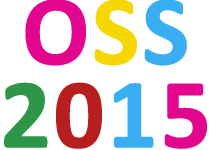Free and Open Source Software (FOSS) has had a disruptive effect on the commercial software industry and the ways that organizations and individuals create, distribute, acquire and use software and software-based services. In addition to the many standalone FOSS projects, FOSS is at the heart of modern network-based computing infrastructures and can be found in the vast majority of applications that run in these environments.
Many organizations that have been known for developing proprietary software are now actively involved with FOSS. FOSS adoption continues to grow among businesses, governments, and other organizations. FOSS remains important for educators and researchers, as well as an important aspect of e-government and information society initiatives, providing access to high-quality software and the code used to create it.
Also, FOSS has taken the lead in a number of crucial ICT domains, like Cloud Computing, where open source cloud stacks are widely adopted, and Big Data, where a wealth of FOSS solutions is now being built around Hadoop.
The 11th International Conference on Open Source Systems (OSS 2015) will celebrate a decade of advances in the use of free and open source software by emphasizing areas and topics that will drive future use over the next decade. This will be achieved through a combination of high-quality research papers, tutorials, workshops, demonstrations, and invited talks. OSS2015 will be co-located with the 2015 International Conference on Software Engineering as a way to cross-fertilize ideas.
The theme for the 2015 edition will be “Open Frameworks: from Service to Cloud“, putting forward the idea on how open source framework can develop the transition from traditional IT services to cloud-based architectures.
A central goal of OSS2015 is to provide an international forum where a diverse community of professionals from academia, industry, the public sector, and diverse FOSS initiatives can come together to share research findings and practical experiences. The conference also aims to serve as a meeting place where people can identify new research ideas and techniques for putting FOSS into widespread use.
OSS2015 will include research papers, industry papers, formal tool demonstrations, lightning talks, new ideas, experience reports, and posters. OSS2015 also invites proposals for tutorials and workshops, submissions to the doctoral symposium, and submissions of panel proposals.
Accepted papers will be included in the conference proceedings, which are published by Springer.
Topics
We are seeking submissions across a broad range of topics, but are particularly interested in those areas most likely to have an impact on computing over the next decade, including computing infrastructure, data management, and the Internet of Things. For practical experiences, we are seeking submissions that describe FOSS applications in embedded systems (IoT), health care, transportation, communications, and energy management.
Other topics of interest include, but are not limited to, the following:
- FOSS technologies
- FOSS in the cloud
- FOSS for data management and analysis
- Security of FOSS
- Interoperability, portability, scalability of FOSS
- Open standards, open data, open cloud, open hardware and open exhibits
- FOSS in cloud-based applications
- Architecture and design of FOSS
- Mobile and Embedded FOSS
- Mobile Operating Systems
- Open Source apps for mobile devices
- Open Source app markets and software delivery platforms
- Software metrics for Open Source mobile software
- Energy efficiency in Mobile FOSS
- FOSS Quality
- Static and Dynamic FOSS testing
- Formal FOSS verification
- Detection of bad coding practices and adoption of coding conventions
- OSS metrics: measuring FOSS performance, safety, and quality
- FOSS performance
- FOSS Evaluation, adoption and use
- Evaluation of FOSS software, including comparisons with proprietary software, in industry and government
- Use and acceptance of FOSS; organizational policies
- The role of FOSS-oriented foundations
- Dissemination, redistribution and crowdsourcing of FOSS systems
- Expanding scientific research and technology development methods through openness
- Role of FOSS in ICT and sustainable development
- FOSS practices and methods
- New experiences with FOSS development tools and practices
- Knowledge and documentation management in FOSS
- Economic, organizational and social issues related to FOSS
- Economic analysis of FOSS
- Maturity models of FOSS
- FOSS in public sector
- FOSS intellectual property, copyrights and licensing
- Non-Governmental Organizations and FOSS
- FOSS and education
- Teaching FOSS to people of all ages and backgrounds
- Use of FOSS in education
- FOSS platforms and toolkits
- FOSS Data processing and storage platforms
- FOSS environments for cloud computing
- FOSS business intelligence toolkits
- FOSS business packages (CRM, ERP, HRM)
- FOSS collaboration and communication environments
Important Dates
- Extended Paper Submission due: January 17, 2015
- Notification to Authors: February 14, 2015
- Camera ready due: February 28, 2015


